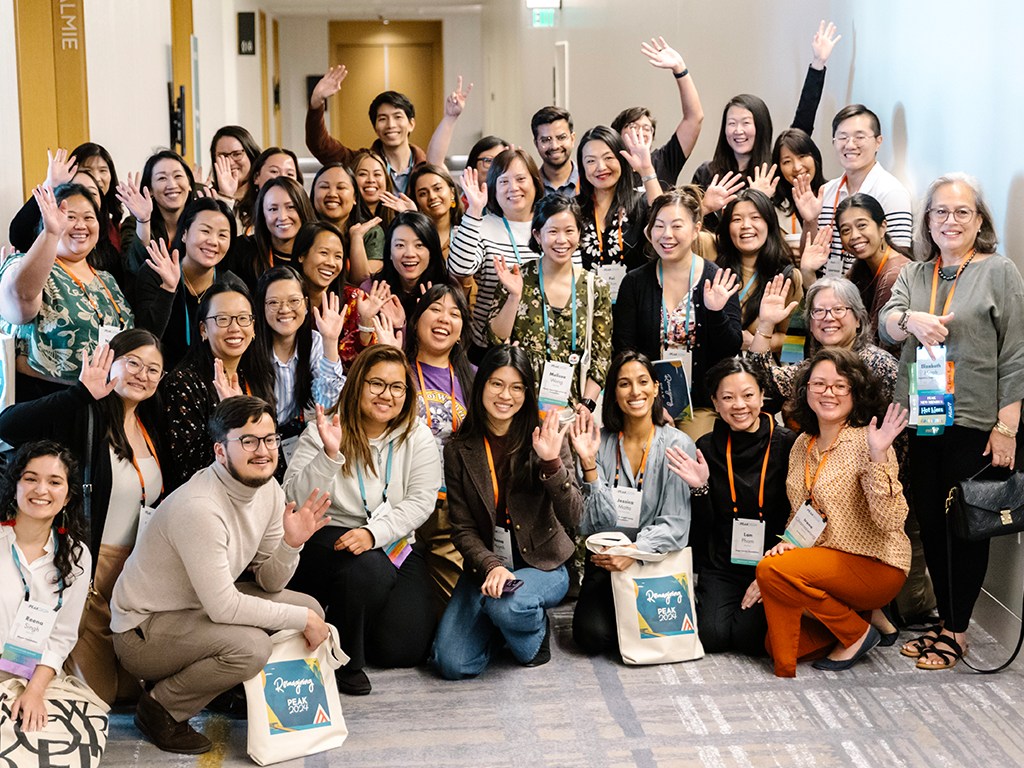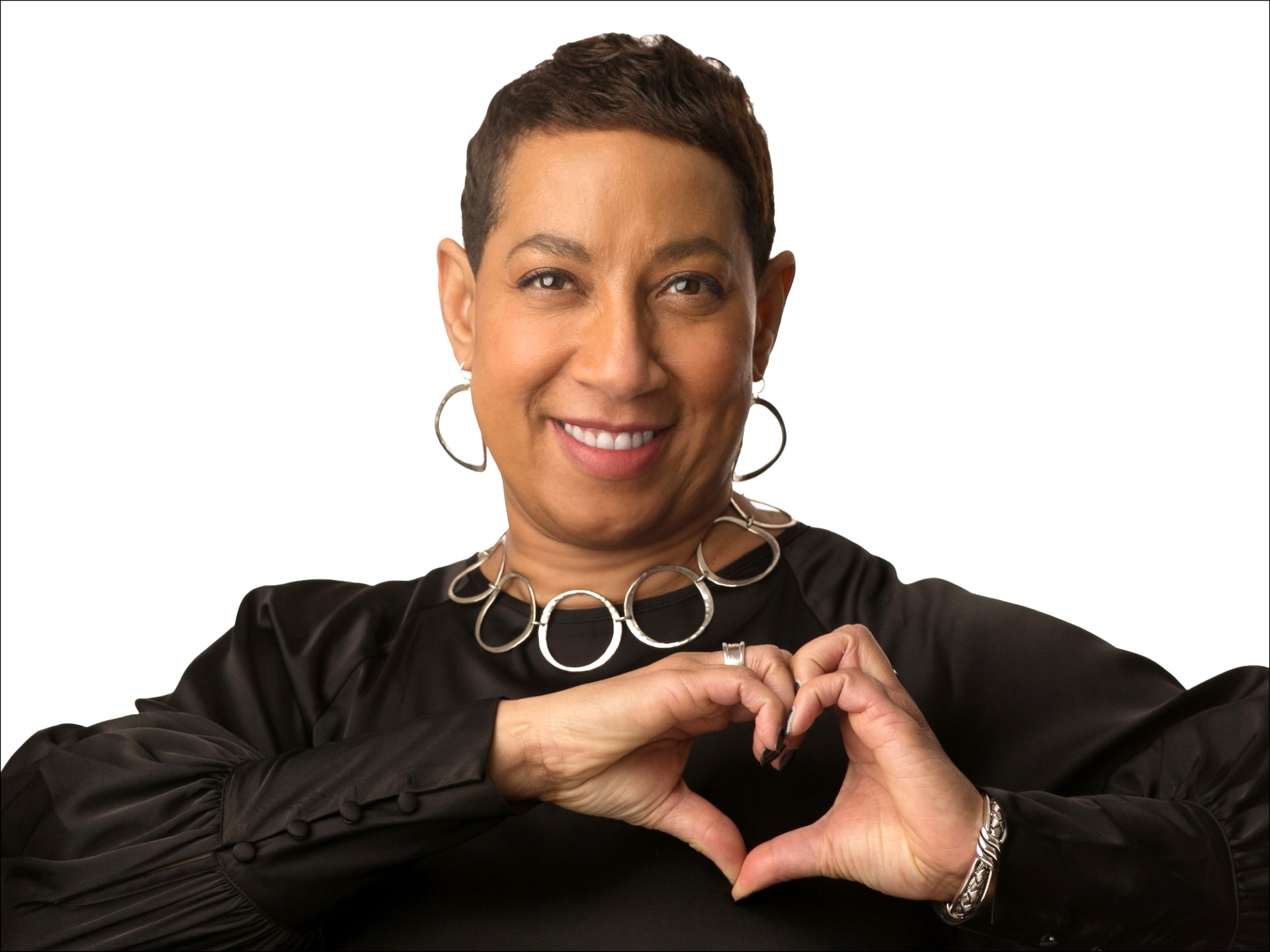Revisiting the Black Voices Issue of the Journal: How philanthropy has (and hasn’t) changed

In the spring of 2020, PEAK released the Black Voices in Grants Management issue. Our newly reimagined Journal takes a candid look at the experience of Black professionals in philanthropy. “We could not have predicted that a global pandemic would hit the world weeks later, which had a devastating and disproportionate impact on Black people. Those communities were hit the hardest,” guest editor Roland Kennedy, Jr., director of grants management at Carnegie Corporation of New York, recalls. “Nor could we have predicted having to navigate the murders of Ahmaud Arbery, Breonna Taylor, and George Floyd.”
We shared this issue with the PEAK members at an especially raw moment for our country. Three years later, its examinations of inequity and how white supremacist culture shows up in philanthropy continue to resonate with our community. “The Black Voices issue of the Journal is unique because it’s squarely focused on the grants management profession and this membership,” Journal contributor Genise Singleton, director of grants management at Kresge Foundation, observed. A year later, we made the Black Voices issue available to the broader community, and readership continues to grow.
With that in mind, as we also honor Black History Month, we reconnected with Kennedy, Singleton, and Steven Casey, deputy director of grants at the We Mean Business Coalition, to ask them to reflect on the Journal, the progress philanthropy has made in the past few years and what more still needs to be done.
Why do you think this resource has the staying power that it does, especially with so many other voices in the sector that have come out with resources on racial equity issues within philanthropy in the past three years?
Singleton: Yes, the voices are many. But the voices from this resource are coming directly from the black community within the grants management profession. Although the strength of any work requires many hands, its the voices of those with the lived experience that will give power and purpose to any movement. This journal provides the sector with what is, not theories, but real people that you can touch and see.
Casey: The daily experiences of African Americans unfortunately have a staying power in our country’s memories that continues to be documented and reinforced with every new story exposing another atrocity. Our continued hope and dream that this will be the last time, then, true to form, it happens again and the cycle starts over like yesterday never happened.
That same pattern is mirrored in the career pathways and office experiences of many African Americans in the philanthropic sector. The courage, aspirations and dreams of my fellow authors in Black Voices was to break this cycle of silence in shadows and serve as a bright beacon for others to tell their story, with courage at their hems, to change this sector for the better. Black Voices will continue to have its staying power as long as there are uneven experiences, not just with the African American experience, but for all who fall outside of the dominant power structure.
Kennedy: The Black Voices Journal is both relatable and real in any given year. Black Voices was created by simply paying attention and listening to Black philanthropy, especially grants professionals, and deciding to amplify experiences through text, including the realities about the fight to find joy at and in one’s work—and navigating what I call the second uncompensated job of negotiating how much of one’s whole self Black people might have to think about bringing to work. At the time the Journal was created, I recall publications that centered on diversity, equity, and inclusion and “people of color” generally, but nothing that was unique and specific to Black people. I think these examples and reminders drive the staying power of this Journal.
In what ways has philanthropy made progress on the issues elevated by this magazine, with regard to the Black professional experience in this sector or in terms of better supporting nonprofits and communities? And what more does philanthropy need to do?
Singleton: Philanthropy is making strides. We are seeing more strategic funding in support of nonprofits that are on the front line; specifically making grants to grassroots organizations that are impeded in marginalized communities. Money is a powerful weapon and I believe that the sector is beginning to use their resources to address systemic racism and racialized disinvestment. Just like money has power, knowledge is power. Prior to the pandemic, the only conference where the content was centered on equity and justice was the Association of Black Foundation Executives, now known simply as ABFE. But in the past few years, there has been a surge of knowledge sharing throughout the sector. In the last few years, I haven’t been to a conference where there wasn’t a conversation (plenary, session) that wasn’t centered on diversity, equity, inclusion, and justice. So, we are getting somewhere.
What more does philanthropy need to do? I remember as a child learning how to cross the street in Detroit. My parents would often say stop, look and listen. So that’s what the sector needs to do. Stop ignoring what is right in front of you. Look for opportunities to build wealth in disenfranchised communities. Be willing to listen and gain an understanding from the Black and Brown professionals in this sector. The equity that we are calling for starts within our own structures with a willingness to dismantle the ideology and systems that reinforce oppression.
Casey: The world in which we live has fundamentally changed since the Fall/Winter 2020 when this publication first launched. Just the pandemic alone shifted our momentary attention to those in lesser roles in life, not to mention the reverberating effects worldwide after the murder of George Floyd. While progress has been made in some corridors in areas like hiring or new funding streams for already Black-led groups, the issues that have been experienced by people of color and specifically African Americans now find themselves front and center versus hidden in someone’s locked-away, personal memories.
While it is now woke or right to bring color to the staff makeup, is that enough? Is it enough to allow incremental growth in philanthropy’s C-suites and boardrooms? If we want to speak truth to power, we could further expand concepts like participatory grantmaking and bring in the voices of the community to not just review the proposals or speak on behalf as a translator, but also into the boardroom to allow for those diverse voices to direct the corpus, rather than the “loose” change allotted to the program that year. Let the voices be heard versus captured in the same ol’ tired report the new consultant shares with the board about what a community needs and wants or deserves.
Kennedy: Progress is hard to measure given that much of, but not all, of the Journal’s content is about experiences in the workplace and interactions within the sector. It has not quite been a full year since many of us have returned to the office, but it’s no surprise that surveys are showing that Black professionals were the least excited about going back for many of the reasons highlighted in the Journal. While more foundations and philanthropy-supporting organizations have Black presidents, more Black professionals are also leaving the sector altogether, and Black-led nonprofits are still underfunded and over-scrutinized. Not least among these issues, nearly $12 billion in philanthropic capital was pledged towards racial justice issues between 2020 and 2021, yet the majority of these pledges were one-time commitments and an inequitable gap remains regarding what was pledged and what was actually funded.
Progress is not the word I would bestow on the sector as it relates to the urgency required to fund and support Black professionals internally and Black lives externally. I would say that the sector is more aware and responsive than it was three years ago. However, we need to move from responsive actions to systemic change. For a sector that likes to embrace terms like complexity and innovation, I think we just need to get the basics right and stop missing what’s right in front of our faces about supporting Black lives.
For the individual person who is reading this issue, what is one thing they can do now to turn the thoughts in these pages into action at their organization?
Singleton: How does one turn these thoughts into action? We all have a role to play in change. Some of us have been beating this drum for a very long time, while some are just entering the line. Keep in mind that there is space for all.
To my sisters in Philanthropy, it’s always been cool being royalty, we have always belonged here. Let’s be brave and challenge the status quo. Seek to learn (or even unlearn), listen, make space for those who need to make their voices heard.
To everyone, be willing to take the journey. Just as racism was constructed, it can be demolished.
Casey: The power of action rests with the individual to recognize what they feel is wrong and find the best way to communicate to others the issue and the urgency for a resolution.
In 1968, Dr. Martin Luther King preached “The Drum Major Instinct” sermon from the pulpit of Ebenezer Baptist Church. King discussed how people’s desire to be recognized, respected, and in control can drive them to strive for greatness, but also can lead them to engage in negative behaviors like selfishness, greed, and the exploitation of others. “Do you know that a lot of the race problem grows out of the drum major instinct? A need that some people have to feel superior … and to feel that their white skin ordained them to be first.”
He argued that the best way to satisfy this instinct is through service and love for others, rather than seeking power, prestige, and material possessions.
It is finding balance in your desire to take action while balancing King’s long-ignored principles of love, compassion, and service of the larger mission, but never wavering until the battle is won.
Kennedy: For the white individual reader, what comes up for you as you read about the experiences and data in the Journal? Were you aware of what many of your Black colleagues at all staff levels are up against? Challenge yourself to sit with these pages and think about how you might better support your Black colleagues and advocate for Black-led grantees.
For the Latinx, Asian American, Native Hawaiian, Pacific Islander, Native Americans, and other readers of color, what areas of overlap and similitude do you see? My call to action to you is to understand that anti-Black racism is the blueprint for the racism that inflicts all of our communities and to find more commonalities that we can scale together to impact positive change in this sector.
For the Black individual reader, my call to action for you is to show up in this sector like you belong. I encourage the audacity to show up and dare to lead in a space that wasn’t created for you in the first place. Let the experiences in these pages humbly remind you of some of the realities of being Black in philanthropy, and in life, but don’t let them exhaust you. Find and cultivate an intentional community of peers and mentors, remember your “why” for your work, and don’t wait for permission to amplify your voice in rooms where you may be the “only” or among the faithful few Black colleagues.
Click here to explore the Black Voices in Grants Management issue of the Journal, which is free to the entire philanthropic community to read online or download as a PDF.






